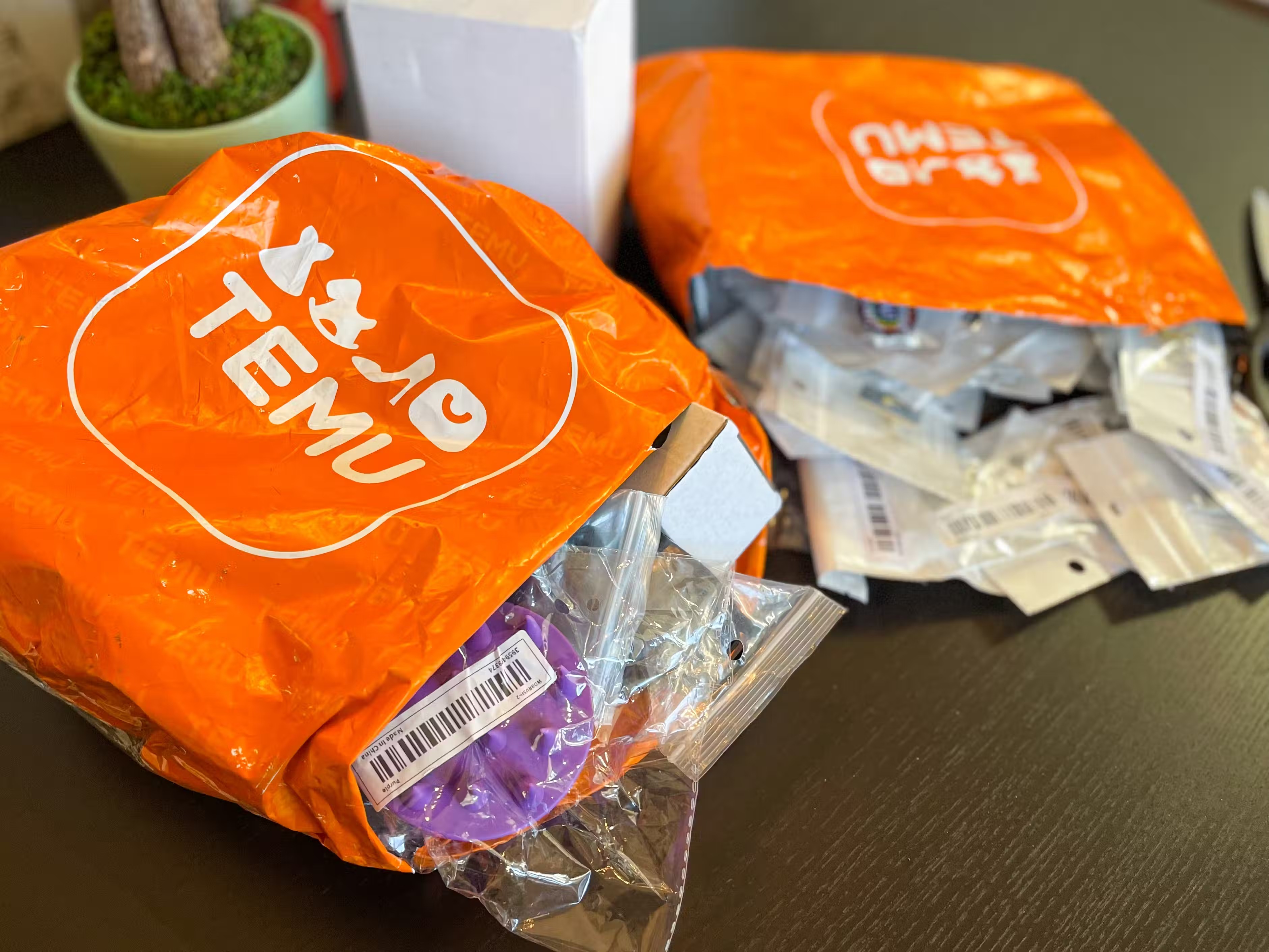
Will Temu Goods Flood Europe?
US President Trump is visiting Saudi Arabia, Qatar, and the United Arab Emirates. In political talks, Gaza and Israel cannot be avoided, but it is certainly easier to discuss only the economy.
The business model of Chinese e-commerce platforms Temu and Shein has been dismantled, and the influx of their cheap goods into the United States suppressed after President Donald Trump closed loopholes in the duty-free regime law.
In 2024, 1.36 billion shipments entered the US under the so-called de minimis rule, which exempts goods worth less than $800 (704 euros) from import duties. This is nine times more than in 2015, when there were 153 million such shipments.
Goods purchased from Temu and Shein, which accounted for 30 percent of low-value American packages daily last year, will now be subject to a 30 percent tariff or fixed fees of up to $50, plus a 145 percent import duty on Chinese goods imposed by Trump last month.
With such prices for American consumers, which have more than doubled, the profit margins of these merchants are collapsing. This also means that Temu and Shein will likely double their pressure on Europe to maintain their low-cost business model, exploiting a loophole in the EU's minimum shipment value law – writes Danas.
The EU Also Plans to Close the Loophole
Although lower than the US threshold, the EU's exemption of 150 euros ($170) has not slowed the explosive growth of Temu and Shein. In 2024, 4.6 billion low-value packages flooded the EU market – twice as many as in 2023 and triple compared to 2022. Moreover, 91 percent of these shipments come from China.
Every day, 12.6 million duty-free packages are delivered, threatening EU retailers burdened by higher labor, supply chain, and compliance costs. Unlike their Chinese rivals, EU companies do not benefit from favorable international postal rates.
Although the European Commission proposed abolishing the de minimis rule two years ago, the plan is still awaiting approval from the 27 EU member states and the European Parliament. According to Bloomberg, it is expected to be abolished no earlier than 2027.
This delay threatens EU companies already facing fierce Chinese competition – from e-commerce to solar panels and electric vehicles – goods that are now increasingly redirected to Europe due to Trump’s tariffs.
Many EU retailers fear that Temu and Shein will now flood European markets with even more cheap products, potentially driving them into bankruptcy.
Chinese Goods Often Fail Safety Tests
In addition to threatening profitability and increasing layoffs in EU companies, the influx of cheap Chinese goods raises even greater concerns about product safety.
Agustin Reyna, Director General of BEUC, the European Consumer Organisation lobby in Brussels, says that organizations like his have collected "extensive evidence" that Chinese goods – from toxic makeup and clothing to faulty toys and devices – do not meet EU safety standards.
"We need additional tools to address the influx of unsafe products entering Europe via small packages, often purchased on platforms like Temu," Reyna told DW. "Consumers are unknowingly putting their health and safety at risk."
In January, the European Commission promised new, stricter controls on Chinese retail platforms to prevent the entry of "unsafe, counterfeit, or even dangerous" products into the EU. Trade Commissioner Maroš Šefčovič called on EU lawmakers to introduce a handling fee for Chinese packages to cover rising costs.
Many policymakers would like online platforms to be directly responsible for selling dangerous and counterfeit products. Currently, platforms like Temu are only intermediaries, not sellers, thus avoiding direct responsibility. This creates huge problems for customs authorities and regulators.
"With over 12 million packages entering the EU single market daily, it is simply unrealistic to expect customs to act as the last line of defense," Reyna emphasizes. "It is therefore necessary to make online merchants responsible for the safety and compliance of the products they sell to European consumers."
The Growing Problem of VAT Fraud
There is increasing evidence of other illegal practices by Chinese sellers – for example, declaring lower goods values to evade sales tax or value-added tax (VAT), which range from 20 to 27 percent depending on the EU country.
"There are many cases where importers declare incorrect values of their shipments to fall below the prescribed threshold and avoid customs formalities. This is fraud," says Momchil Antov, a Bulgarian economist and customs expert from the D. A. Tsenov Academy of Economics, to DW.
Last month, the EU's Anti-Fraud Office (OLAF) and Polish authorities uncovered a sophisticated VAT fraud scheme involving Chinese goods imported into the EU. To evade taxes and duties, fraudsters declared that goods were destined for other EU countries, while in reality, they mostly remained in Poland.
In another case, since 2023, Chinese exporters have used Belgium’s Liège Airport to evade 303 million euros in taxes, employing a complex system involving private customs agencies and fake companies in other EU countries.
Although the European Commission’s plan to abolish the exemption on shipments up to 150 euros remains blocked, some EU countries have adopted Šefčovič's proposal. For instance, the French government announced last week that it would increase inspections of low-value goods entering the country.
Product safety, labeling standards, and environmental protection standards will be checked, and Paris will charge a flat "management fee" for each shipment.
In any case, EU policymakers will need to curb fraud and ensure compliance while also promoting fair competition, without restricting consumers' access to affordable goods from Chinese merchants.





